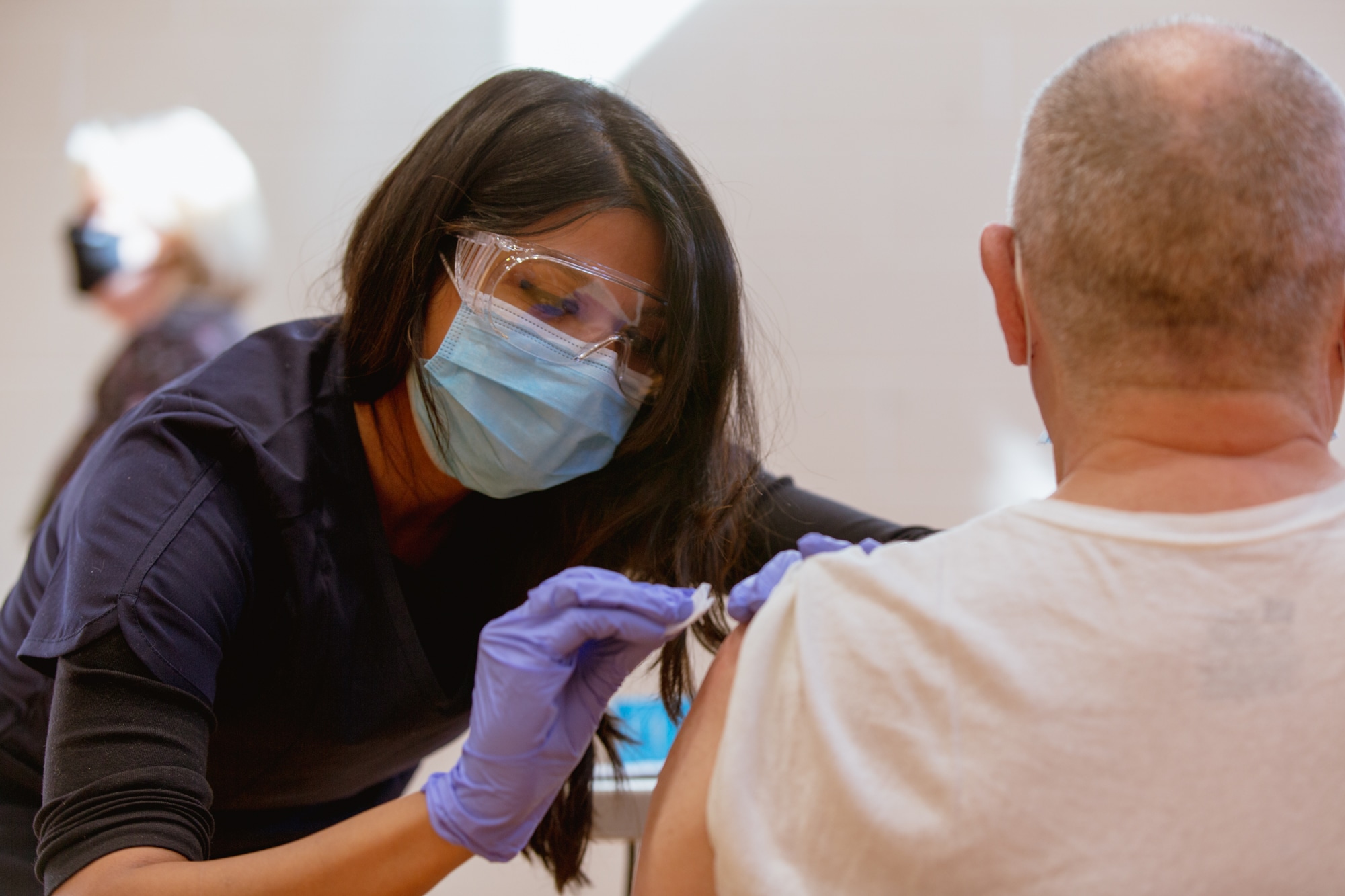Yes, many people do need another COVID booster. The CDC says everyone 6 months and older should get the updated 2024-2025 COVID vaccine. People 65 and older need two doses. Those with weak immune systems may need even more shots.
But things are changing fast. Recent policy updates mean healthy young adults might not get routine yearly boosters anymore. Let’s break down who needs what and when.
This guide will help you understand current booster rules, who benefits most, timing advice, and what to expect. We’ll also cover the latest policy changes that might affect your access to future COVID shots.
Who Really Needs COVID Boosters Right Now
People Who Definitely Need Boosters
Adults 65 and Older If you’re 65 or older, you should get two doses of the 2024-2025 COVID vaccine. Space them 6 months apart. CDC data shows that more than 81% of COVID deaths happen in people over 65. According to the CDC’s official vaccine recommendations, your immune system gets weaker with age, so boosters help keep you safe.
People with Weak Immune Systems Anyone with conditions like cancer, organ transplants, or taking immune-suppressing drugs needs at least two doses. Some may need three or more based on their doctor’s advice. Research shows vaccine effectiveness drops to just 1% after 120-179 days in immunocompromised people, making regular boosters crucial. The CDC’s clinical guidance provides detailed recommendations for immunocompromised individuals.
High-Risk Health Conditions You need boosters if you have:
- Heart disease or diabetes
- Lung problems like asthma
- Kidney or liver disease
- Obesity (BMI over 30)
- Mental health conditions like depression
The CDC estimates 100-200 million Americans have conditions that put them at higher risk.
People Who May Not Need Regular Boosters
Healthy Young Adults New FDA rules mean healthy adults under 65 might not get routine yearly boosters anymore. The FDA now requires clinical trials before approving boosters for healthy people ages 6 months to 64 years. This could make boosters harder to get for this group. A Stanford Medicine study found that booster benefits are more modest for younger, healthy populations compared to older adults.
Children and Teens Most healthy kids still get one dose of the updated vaccine. But recent policy changes stopped routine recommendations for healthy children, though they can still get vaccinated.
Current COVID Booster Recommendations
The 2024-2025 Updated Vaccines
Three vaccines are available:
- Moderna – mRNA vaccine targeting KP.2 strain
- Pfizer-BioNTech – mRNA vaccine targeting KP.2 strain
- Novavax – Protein-based vaccine targeting JN.1 strain
All vaccines work well against current COVID strains. There’s no preference between them.
How Many Doses You Need
Most People: One dose of the 2024-2025 vaccine Ages 65+: Two doses, 6 months apart (minimum 2 months) Immunocompromised: At least two doses, possibly more Never Vaccinated: May need 2-3 doses depending on which vaccine
When to Get Your Booster
Get vaccinated now if it’s been 2 months since your last COVID shot or infection. Protection from vaccines is strongest in the first few months, then slowly decreases.
Don’t wait if you’re in a high-risk group. COVID cases often rise during fall and winter months.
Benefits of Getting Another COVID Booster
Protection Against Severe Illness
Current vaccine effectiveness is 33% against emergency room visits and 45-46% against hospitalizations. While this might seem low, it still prevents thousands of hospital stays. The latest CDC burden estimates show COVID continues to cause significant illness and hospitalizations across the United States.
Even if you get COVID after vaccination, you’re likely to have milder symptoms. COVID vaccination averted about 68,000 hospitalizations during the 2023-24 season.
Reduced Risk of Long COVID
Vaccination helps prevent long COVID – the lingering symptoms that can last months or years. This includes brain fog, fatigue, and breathing problems that affect people of all ages.
Protection for Others
Getting vaccinated helps protect family members, especially elderly relatives or those with health problems. You’re less likely to spread COVID when you’re vaccinated.
COVID Booster Side Effects and Safety
Common Side Effects
Most people have only mild side effects that last 1-2 days:
- Sore arm where you got the shot
- Tiredness or feeling run down
- Headache or muscle aches
- Low fever or chills
- Upset stomach
These side effects show your immune system is working. Take rest and use pain relievers like acetaminophen if needed.
Rare but Serious Side Effects
Heart Inflammation (Myocarditis) Very rare cases of heart inflammation have been reported, mostly in young men. Most people recovered completely with rest and simple treatment. The CDC’s vaccine safety monitoring continues to track these rare events closely.
Severe Allergic Reactions Serious allergic reactions happen in fewer than 1 in a million doses. Vaccine sites are prepared to treat these reactions immediately.
Who Should Not Get Boosters
Very few people should skip COVID vaccines:
- Those with severe allergies to vaccine ingredients
- People currently sick with fever (wait until better)
- Anyone who had a severe reaction to a previous COVID shot
Most people with health conditions should still get vaccinated. Talk to your doctor if you’re unsure.
Cost and Access to COVID Boosters
Insurance Coverage
COVID vaccines are covered by most insurance plans, Medicare, and Medicaid. Uninsured children can get free vaccines through the Vaccines for Children Program.
Where to Get Vaccinated
You can get COVID boosters at:
- Local pharmacies like Greenleaf Pharmacy
- Doctor’s offices
- Community health centers
- Some workplaces
Use the CDC’s vaccine finder at Vaccines.gov or call 1-800-232-0233 to find locations near you.
Future Access Concerns
New FDA rules might make it harder for healthy younger adults to get boosters. Insurance companies might stop covering vaccines for people who don’t meet high-risk criteria. This could affect millions of Americans.
Making Your Decision About COVID Boosters
Questions to Ask Yourself
- Am I in a high-risk group? (Age 65+, health conditions, weak immune system)
- When did I last get vaccinated or have COVID? (If over 2 months ago, consider a booster)
- Do I live with or care for vulnerable people?
- Am I traveling or attending large gatherings soon?
Questions for Your Doctor
- Based on my health, do I need a COVID booster?
- How many doses should I get this year?
- Can I get other vaccines at the same time?
- What side effects should I watch for?
If You’re On the Fence
Even if you’re young and healthy, getting vaccinated helps:
- Reduce your chance of getting sick
- Lower risk of spreading COVID to others
- Prevent potential long-term health problems
- Support community health
What’s Coming Next for COVID Boosters
Policy Changes Ahead
The landscape is shifting fast. New FDA requirements mean companies must do expensive clinical trials before getting approval for healthy adults. This might mean:
- Fewer booster options for healthy people under 65
- Higher costs if insurance stops coverage
- Annual boosters might not be updated every year
2025-2026 Vaccine Updates
FDA advisors recommended updating next year’s vaccines to target JN.1-related strains, which are closer to currently circulating variants.
Final Thoughts
Bottom line: Most people still benefit from COVID boosters, especially those 65 and older or with health conditions. The vaccines are safe and help prevent serious illness, even if they don’t stop all infections.
Recent policy changes mean the future of COVID boosters is uncertain for healthy younger adults. If you want a booster and qualify under current rules, it’s smart to get one now while access is still widespread.
Talk to your healthcare provider about what’s right for your situation. They can help you weigh the benefits and risks based on your age, health, and lifestyle.
Ready to get your COVID booster? Contact Greenleaf Pharmacy in Park City at 847-242-8267 to schedule your appointment. We offer convenient COVID-19 vaccination services with expert pharmacist guidance and free next-day delivery for your other health needs across Illinois.

